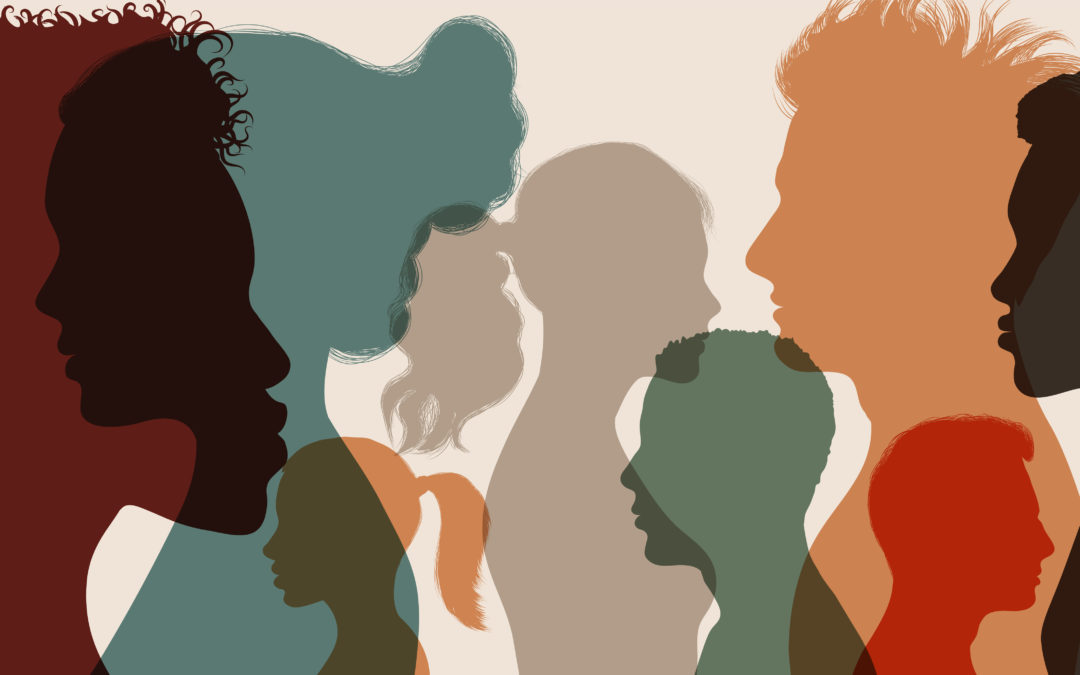As a Latina and a woman, I navigate my career with a dual identity. I’m proud to contribute to an organization’s diversity; in the right setting, I represent my vibrant culture and embrace my femininity. However, despite being told diversity is welcome, I wonder what identity explains the root of experienced discrimination at work. Is it my race, gender, or socioeconomic class?
Wanting professional success wasn’t due to not seeing people like me thrive. It came from knowing that other marginalized groups and I deserve equitable treatment and the opportunity to grow our careers. But it too often felt that the higher you succeed, only one diverse face could make it at a time. I consistently experienced a clash between company statements and company actions, leading to navigating confusing and fearful environments.
As a First Generation Professional (FGP), I dealt with confusing and fearful environments as a child. Despite being told inclusion matters, organizational efforts to erratic discrimination weren’t working. As an employee, what role do I have? Do I speak up, feed into my childhood traumas, and risk facing unfair opinions from people with power and privilege? Why closeted (covert) discrimination lives in the shadows of many corporations is understandable. People of color have something to risk that many of our peers do not.
Discrimination Today
Today, organizations are more aware of race distribution at work. They are working to ensure enough people are represented and place diversity top of mind in recruiting, hiring, and promotions. However, FGPs do not make up the majority. Most corporate employees come from a higher socioeconomic background and understand how to grasp organizational politics, frameworks, and programs quickly.
First-generation professionals enter the workforce after college to realize they are largely disadvantaged. To survive, they try to assimilate into white-collar expectations of what is acceptable in the workplace. Since FGPs are diverse in their journeys, assimilation takes time, and many are unaware of these unspoken norms, leaving the door open for discrimination. It is not the responsibility of protected classes to self-learn the norms around language and expression regarding immigration status, class, sexuality, and disability. Nevertheless, coaches and speakers emerge to provide community platforms for groups affected by workplace discrimination.
Corporate Internal Operations
People programs across corporations rely on an advisory not seeking to dismantle white privilege. Research advising frameworks and initiatives are rooted in white perspectives, thus supporting what norms and behaviors are acceptable. Meaning that people of color are evaluated with the assumption to act like the majority, their white peers. Systematic barriers within corporate policies continue to make it challenging to obtain equitable success. Advised to bring your authentic self is the start of being told we are not the ‘ideal fit’ and adversely disrupts hiring and promotion opportunities. This psychological research is WEIRD, White, Educated, Industrialized, Rich, and Democratic.
“99% of all published studies rely on participants recruited from populations that fit those criteria. This reliance on a limited population of participants is problematic for many reasons.”
Socioeconomic class is the start of venturing out into more inclusive work environments. We have an immense opportunity to uncover people’s vast, unique, diverse experiences within a socioeconomic class.
Collecting Voices
As layoffs continue, particularly in technology, make yourselves aware of SB 331, the “Silenced No More Act,” passed earlier this year (2022). The Act introduces additional restrictions on employee separation agreements, such as non-disparagement and settlement agreements carried out with employees. The Act protects employees who experience bias based on race, ethnicity, sexual orientation, age, disability, religion, workplace discrimination, harassment, etc. SB 331 is an addition to Senate Bill 820: STAND Act (Stand Together Against Non-Disclosure Act) which protects employee separation agreements based on workplace harassment or discrimination based on sex. If you feel you classify under this protection and want to share your story, I’d love to get in touch!

